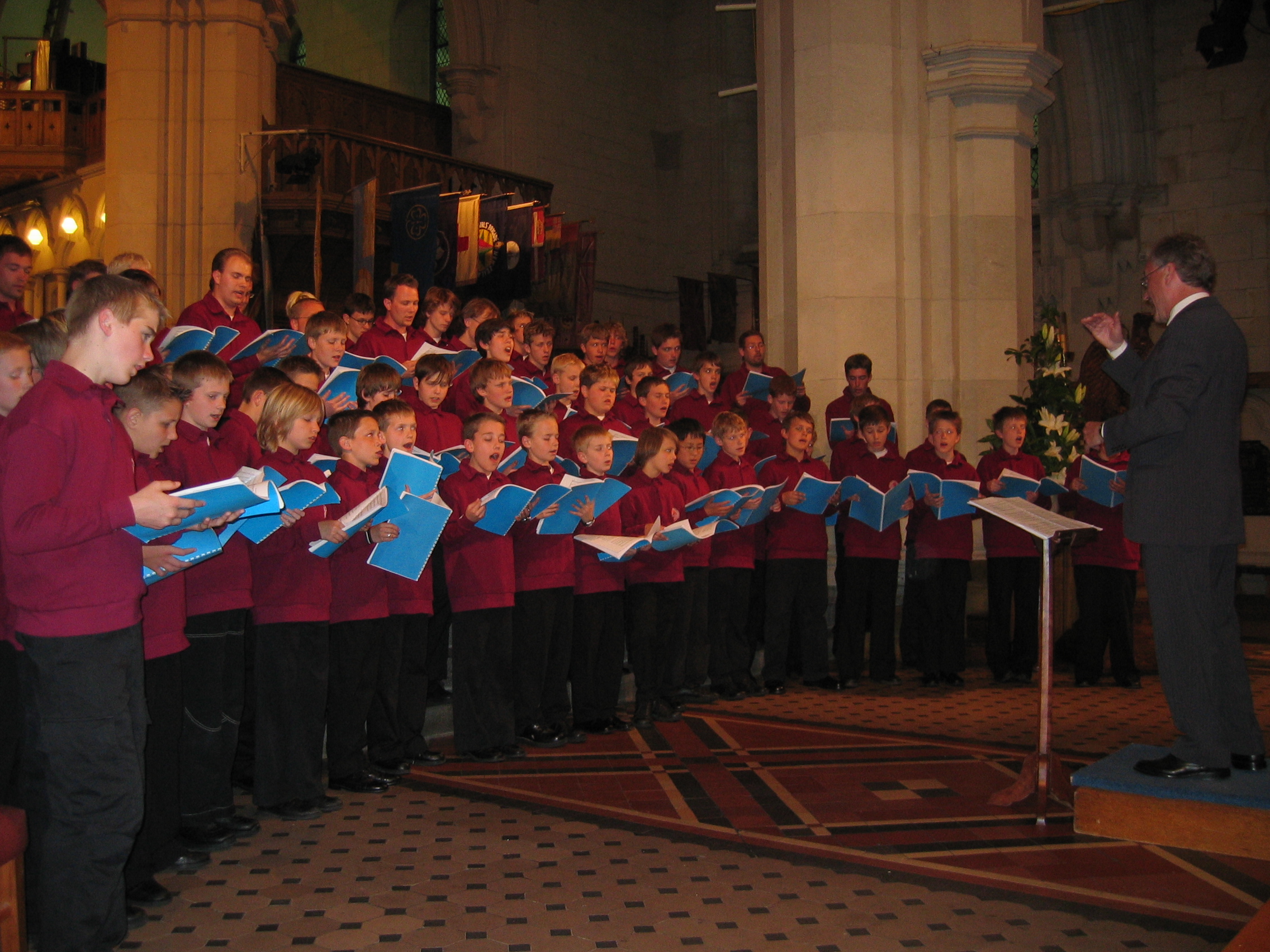
A cappella
Music performed a cappella, less commonly a capella,[1] (/ˌɑː kəˈpɛlə/ AH-kə-PEL-ə, UK also /ˌæ -/ A-, Italian: [a kkapˈpɛlla];[2] lit. 'in the style of the chapel') is music performed by a singer or a singing group without instrumental accompaniment. The term a cappella was originally intended to differentiate between Renaissance polyphony and Baroque concertato musical styles. In the 19th century, a renewed interest in Renaissance polyphony, coupled with an ignorance of the fact that vocal parts were often doubled by instrumentalists, led to the term coming to mean unaccompanied vocal music.[2] The term is also used, rarely, as a synonym for alla breve.[3]
For other uses, see A cappella (disambiguation).A cappella
Early history[edit]
A cappella could be as old as humanity itself. Research suggests that singing and vocables may have been what early humans used to communicate before the invention of language.[4] The earliest piece of sheet music is thought to have originated from times as early as 2000 BC,[5] while the earliest that has survived in its entirety is from the first century AD: a piece from Greece called the Seikilos epitaph.[5]